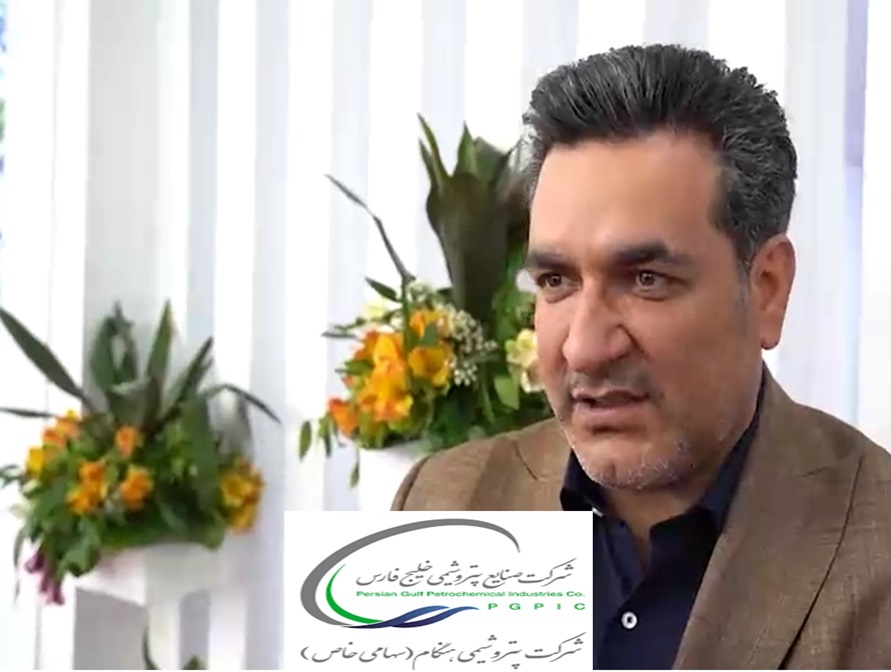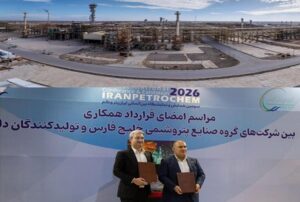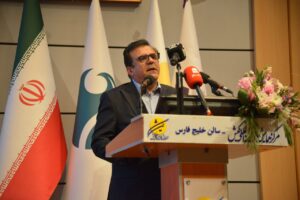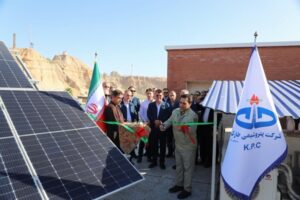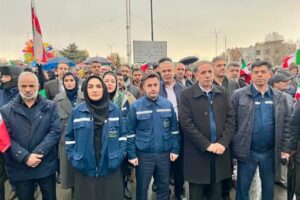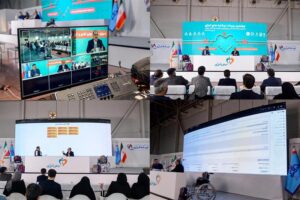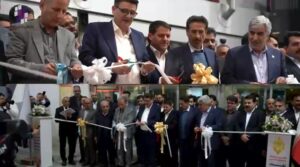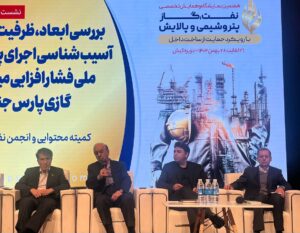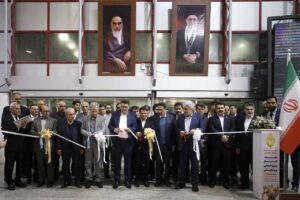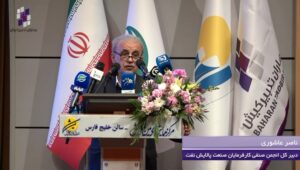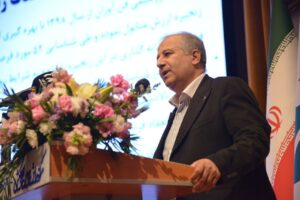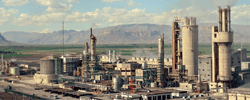Rahbord Energy: Hengam Petrochemical’s CEO Gholamreza Jamshidi highlighted the fact that the Hengam Petrochemical Project had been delayed for many years for various reasons. He noted that under the new management of Persian Gulf Holding, the launch of the Hengam Petrochemical Project was given priority, and with the support of the CEO of Persian Gulf Petrochemical Industries Co. (PGPIC), Dr. Ali Askari, it has been possible to operationalize ammonia production units. Jamshidi added that so far, more than 13 ammonia ships have been exported.
Jamshidi further highlighted urea pre-launching work at Hengam Petrochemical Company and said the unit will become operational this year. He noted that urea plays an important role in food security in Iran and globally since it is used in fertilizers.
Hengam Petrochemical’s CEO has expressed hope that the urea petrochemical production unit will be inaugurated in the current Persian calendar year. He noted that until then, the company will continue to sell its ammonia products in international markets. The production of urea will also be a good source of income for the PGPIC.
Regarding the production grade of urea and the value chain plan, Jamshidi noted that the urea set to be produced at Hengam Petrochemical Company has a granular 46% grade, just like other manufacturers in the country. He touched on one of the advantages of Hengam Petrochemical in urea production and said the company possesses its own wharf. He said it would be possible to load 60,000 tons of panomax for export to South American countries. He also noted that discussions and plans to produce melamine crystal as well as other grades of urea are underway, and undoubtedly, Hengam Petrochemical Company will benefit from such plans. Regarding the use of domestic equipment in petrochemical manufacturing, Jamshidi noted that all catalysts are produced locally. Furthermore, most of the equipment used in the industry is produced domestically. He said that, in fact, Hengam Petrochemical is among the industrial units in the country that have become operational without the help of foreign experts. He said its urea unit has been pre-launched by domestic experts.
The CEO of Hemgan Petrochemical also stated that the transformation of Iran into a urea pricing benchmark is among its top priorities. He noted that urea production units are now producing at their 100% capacity, and it is important to use the capacities in other departments’ synergy, including the foreign ministry, to increase Iran’s market share and exports. This, he said, is due to the fact that Irna’s urea production is now known worldwide. He noted that different urea-producing units in Iran now need to synchronize their efforts to strengthen Iran’s markets in Europe, Africa, and South America. so that Russian urea cannot replace Iran in these markets.
He further noted that the union of Iranian urea producers made it possible for Iranian companies to enter the market and to export well, the effects of which were seen by all urea-producing petrochemicals. According to Jamshidi, the move stabilized the price of urea above $800. This price, he said, is beneficial to all urea-producing companies. For this reason, it is hoped to use the joint efforts of urea-producing firms to strengthen the markets and not get limited to one market like Turkey.
Regarding the obligatory delivery of urea to the Ministry of Agriculture Jihad, Jamshidi noted that a lot of effort is being made to reach a compromise and to clear previous debts. According to Jamshidi, urea-producing companies are owed a lot by the government. He emphasized the importance of agriculture for urea-producing firms, but said there needs to be a way so that the companies can sell their products through stock markets, just like other petrochemical products.
Regarding the issue of bartering urea with feedstock, fuel, and taxes, Jamshidi noted that the issue has been raised in the budget law. But according to him, this issue is not easy to implement. He noted that the best solution is to have a separate budget line, grant shares of state-owned companies that create value for shareholders, and transfer this issue to the stock market.

